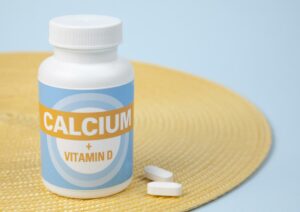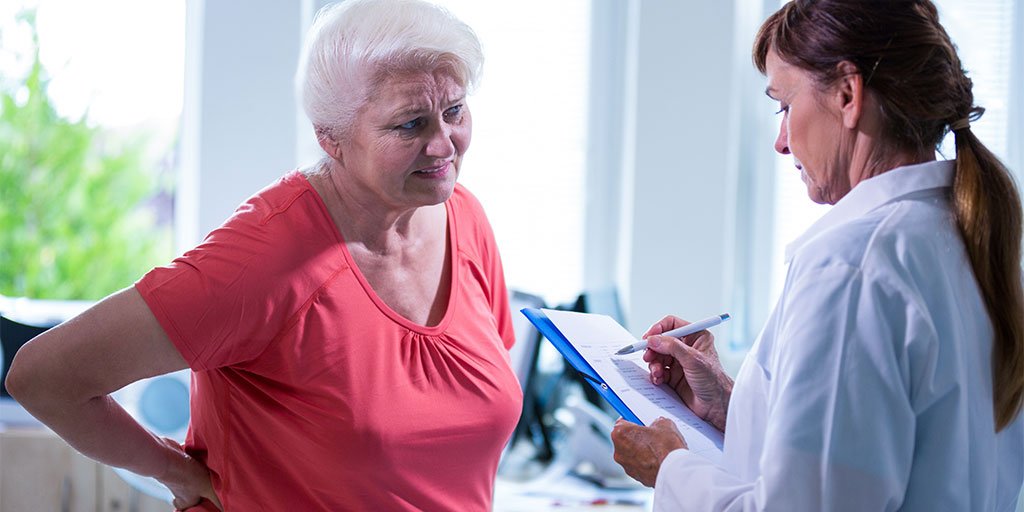Menopause is a natural biological process that marks the end of a woman’s reproductive years, typically occurring in the late 40s or early 50s. While it brings about a cessation of menstruation, it is often accompanied by various symptoms, with hot flashes being one of the most common and bothersome. These sudden and intense feelings of heat, often accompanied by sweating and a rapid heartbeat, can significantly impact a woman’s quality of life. While hormone replacement therapy (HRT) is a conventional approach, many women are seeking natural alternatives to manage menopausal symptoms. In this blog, we’ll explore various natural treatments for menopause hot flashes and how these benefit.
Contents
What are “Menopause Hot Flashes”?

Menopause hot flashes, often simply referred to as hot flashes or hot flashes, are a common and distinctive symptom experienced by many women as they go through the menopausal transition. Menopause is a natural biological process marking the end of a woman’s reproductive years, usually occurring in the late 40s to early 50s. Hot flashes are considered one of the hallmark symptoms of menopause.
Characteristics of Menopause Hot Flashes:
- Sudden Heat Sensation: Hot flashes are characterized by a sudden and intense feeling of warmth, typically starting in the face or chest and spreading throughout the body.
- Flushing and Redness: The skin may become red and flushed during a hot flash, often accompanied by visible perspiration.
- Increased Heart Rate: Many women experience a rapid heart rate or palpitations during a hot flash.
- Duration: Hot flashes can last anywhere from a few seconds to several minutes. The frequency and severity vary from woman to woman.
- Night Sweats: Hot flashes that occur during sleep are commonly referred to as night sweats. These can disrupt sleep and contribute to feelings of fatigue.
Natural Treatments for Menopause Hot Flashes
Managing menopause hot flashes naturally involves adopting various lifestyle changes, incorporating specific dietary choices, and exploring alternative therapies. While individual responses may vary, the following natural treatments have shown promise in helping alleviate menopause hot flashes:
Soy Isoflavones
Soy isoflavones, a group of compounds found in soybeans and soy products, have gained attention for their potential role in managing menopause symptoms, particularly hot flashes. Isoflavones are plant compounds with estrogen-like effects, and they are classified as phytoestrogens. Here’s a closer look at how soy isoflavones may serve as a natural treatment for menopause hot flashes:
How Soy Isoflavones Work:
- Estrogen-Like Effects: Soy isoflavones have a chemical structure similar to estrogen, the hormone that declines during menopause. When consumed, these compounds may bind to estrogen receptors in the body and exert weak estrogenic effects.
- Hormonal Regulation: By interacting with estrogen receptors, soy isoflavones may help modulate hormonal imbalances that contribute to hot flashes and other menopausal symptoms. Individual responses to soy isoflavones can vary. Factors such as the specific compounds in soy consumed, dosage, and individual hormonal profiles may influence outcomes.
Sources of Soy Isoflavones:
- Whole Soy Foods: Incorporating whole soy foods into the diet is a natural way to consume soy isoflavones. Examples include tofu, edamame, soy milk, and tempeh.
- Soy Supplements: Soy isoflavone supplements are available in various forms, including capsules and tablets. However, it’s advisable to obtain nutrients from whole foods whenever possible, as supplements may not provide the same synergistic benefits.
Black Cohosh
Black cohosh (Cimicifuga racemosa) is a herb that has been traditionally used for managing menopausal symptoms, including hot flashes. The plant is native to North America and has a long history of use among Native American communities for its medicinal properties. Here’s an exploration of how black cohosh may serve as a natural treatment for menopause hot flashes:
How Black Cohosh Works:
- Phytoestrogenic Effects: Black cohosh contains compounds with phytoestrogenic properties, meaning they can mimic the effects of estrogen in the body. This can be particularly relevant during menopause when estrogen levels decline.
- Hormonal Regulation: By interacting with estrogen receptors, black cohosh may help modulate hormonal imbalances associated with menopause, potentially reducing the frequency and severity of hot flashes.
Forms of Black Cohosh:
- Dietary Supplements: Black cohosh supplements are widely available in various forms, including capsules, tablets, and liquid extracts. When considering supplements, it’s advisable to choose products from reputable manufacturers.
- Herbal Teas: Some people prefer consuming black cohosh in the form of herbal teas. However, the concentration of active compounds in teas may be lower than in standardized supplements.
Red Clover
Red clover (Trifolium pratense) is a legume that contains compounds known as isoflavones, particularly genistein and daidzein, which are phytoestrogens. These compounds have similarities to human estrogen and may influence hormonal balance. Red clover has been explored as a natural treatment for menopausal symptoms, including hot flashes. Here’s an overview of how red clover may serve as a natural remedy for menopause hot flashes:
How Red Clover Works:
- Phytoestrogenic Effects: The isoflavones in red clover have phytoestrogenic properties, meaning they can bind to estrogen receptors in the body, potentially exerting mild estrogenic effects.
- Hormonal Regulation: By interacting with estrogen receptors, red clover may help modulate hormonal imbalances associated with menopause, which can contribute to the reduction of hot flashes.
Forms of Red Clover:
- Dietary Supplements: Red clover supplements are available in various forms, including capsules, tablets, and liquid extracts. It’s important to choose products from reputable manufacturers and follow recommended dosages.
- Herbal Teas: Some people opt for red clover herbal teas. However, the concentration of active compounds in teas may be lower than in standardized supplements.
Yoga

Yoga, an ancient practice that combines physical postures, breath control, and meditation, has shown promise in providing relief from menopausal symptoms, including hot flashes. Here’s a breakdown of how yoga serves as a natural treatment for menopause hot flashes:
Yoga Poses for Menopause Hot Flashes:
Sukhasana (Easy Pose):
- How to: Sit comfortably with crossed legs, spine straight, and hands on knees. Focus on deep, rhythmic breathing.
Sitali Pranayama (Cooling Breath):
- How to: Inhale through a rolled tongue or puckered lips, exhale through the nose. This breath cools the body and calms the nervous system.
Bhujangasana (Cobra Pose):
- How to: Lie on your stomach, hands under your shoulders, and lift the chest while keeping the pelvis on the floor. Breathe deeply and hold.
Viparita Karani (Legs Up the Wall Pose):
- How to: Lie on your back with your legs up against a wall. This pose promotes relaxation and eases symptoms of stress and fatigue.
Balasana (Child’s Pose):
- How to: Kneel with toes touching and sit back on heels, stretch arms forward. This resting pose helps in calming the mind.
Balanced Diet
A well-balanced and nutritious diet plays a crucial role in managing menopausal symptoms, including hot flashes. Certain dietary choices can help regulate hormones, support overall health, and minimize the impact of hot flashes. Here’s a breakdown of how a balanced diet can serve as a natural treatment for menopause hot flashes:
Key Components of a Balanced Diet:
Phytoestrogen-Rich Foods:
- Sources: Include soy products (tofu, edamame), flaxseeds, whole grains, legumes, and berries.
- Benefits: Phytoestrogens have estrogen-like properties and may help alleviate hormonal imbalances.
Fruits and Vegetables:
- Variety: Consume a colorful array of fruits and vegetables to ensure a wide range of vitamins, minerals, and antioxidants.
- Benefits: Supports overall health and provides essential nutrients.
Lean Proteins:
- Sources: Include lean meats, poultry, fish, eggs, dairy, legumes, and plant-based protein sources.
- Benefits: Promotes muscle health and provides necessary amino acids.
Whole Grains:
- Options: Choose whole grains such as brown rice, quinoa, oats, and whole wheat.
- Benefits: Provides complex carbohydrates for sustained energy and essential nutrients.
Calcium and Vitamin D

Calcium and vitamin D play crucial roles in bone health and overall well-being, and their adequate intake is particularly important during and after menopause. Beyond supporting bone health, these nutrients may also have a role in managing menopausal symptoms, including hot flashes. Here’s a closer look at how calcium and vitamin D can be natural treatments for menopause hot flashes:
Role of Calcium:
- Bone Health: Calcium is essential for maintaining bone density, which becomes particularly crucial during menopause when bone loss accelerates.
- Muscle Function Adequate calcium levels support proper muscle function, including the regulation of blood vessels and sweat glands.
- Nerve Function: Calcium is involved in nerve transmission, potentially influencing the central nervous system’s response to temperature regulation.
Role of Vitamin D:
- Calcium Absorption: Vitamin D facilitates the absorption of calcium in the intestines, enhancing its availability for bone health.
- Immune System Support: Vitamin D is involved in immune system modulation and may contribute to overall well-being.
- Mood Regulation: Some research suggests a link between vitamin D levels and mood, and addressing vitamin D deficiency may positively influence mental well-being during menopause.
Conclusion
While menopause is an inevitable stage in a woman’s life, the impact of symptoms, particularly hot flashes, can be managed through various natural approaches. It’s essential to note that individual responses vary, and what works for one person may not work for another. Before implementing any natural treatments, it’s advisable to consult with a healthcare professional to ensure they are suitable for your specific health needs and conditions. Integrating these natural strategies into your lifestyle may contribute to a smoother transition through menopause, allowing you to embrace this new chapter with greater comfort and well-being.
If you are facing menopause-related issues, menopause treatment at HerMantra can help. Book your free trial online menopause treatment session now.


